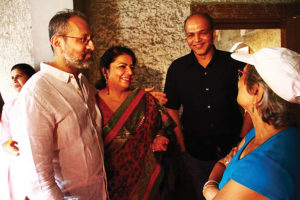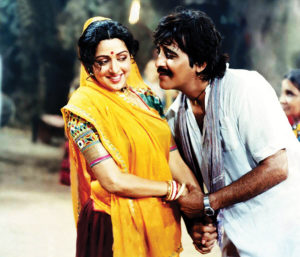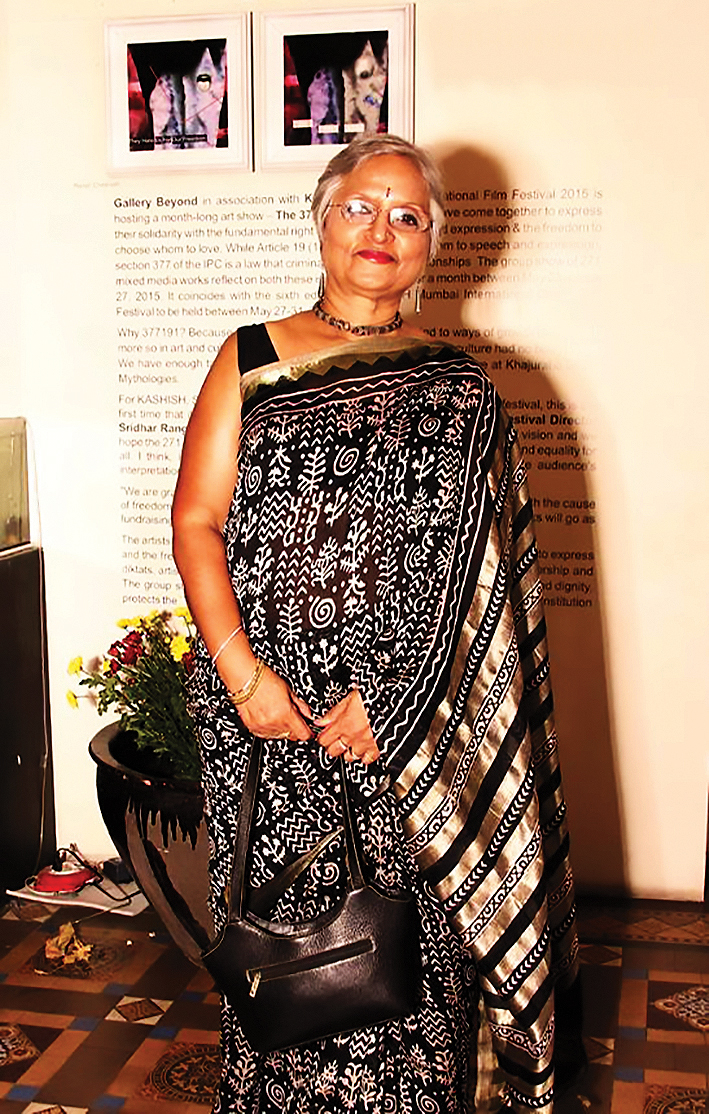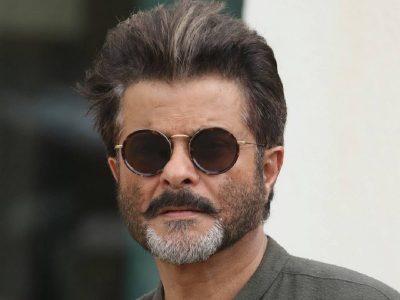For National Award winning filmmaker Arunaraje Patil, age is just a number and sky is the limit
She was the first woman technician to be trained at FTII. She is a prolific filmmaker and a three-time National Award winner. Arunaraje Patil is also a well-known documentary filmmaker and a Padma Shri awardee. And the list goes on.
Some of her critically acclaimed feature films include Shaque (1976), Rihaee (1988), Gehrayee(1980), Situm(1982) and Bhairavi(1996). All her films have strong woman-centric themes.

Patil, a multifaceted personality, has gone through many hardships and challenging situations in her life. For many years, she and her husband, Vikas Desai, had same wavelength and shared their love for filmmaking. However, things changed.
She lost her 9-year-old daughter to cancer, and had to go through a divorce thereafter. Her autobiography Freedom: My Story gives an insight into her struggle and how she stood strong against it.
Her two favourite filmmakers were late Guru Dutt and Bimal Roy – both extraordinary storytellers. They knew the pulse of their audience and their films were rich and enjoyed by millions of fans.
Her dynamic personality and passion for filmmaking, made her take risks by making films on real-life stories. She got felicitated by the President of India Shri Ram Nath Kovind in New Delhi and received Rashtriya Gaurav award in January last year.

She says, “I am delighted to receive the recognition for being the first women technician in the Indian film industry. It’s great that women are breaking new ground every day. I love challenges and the sky is not the limit.”
Her latest project is a Marathi film Firebrand, which is produced by Priyanka Chopra’s Purple Pebble Productions. The movie, which will revolve around contemporary relationships, will star Usha Jadhav, Rajeshwari Sachdev, Girish Kulkarni and Sachin Khedekar.
‘Firebrand’ means a person who is very passionate about a particular cause. And this applies to the filmmaker herself, because of her amazing energy and passion for filmmaking.
Patil says,” It’s great that Priyanka Chopra is producing regional films and am happy that Firebrand is produced by her company Purple Pebble along with her mother Madhu Chopra.”
Earlier, the Chopras produced Ventilator, which bagged three National Awards and was featured in International Film Festival of India (IFFI).
In conversation with Patriot, she talks about the darkest day of her life, her passion for films, her upcoming projects and more.
How did you select the cast for Firebrand?
We have Rajeshwari Sachdev, who won the National Award for her brilliant role in Sardari Begum. Then there’s Usha Jhadav, Girish Kulkarni and Girish Khedekar – all of whom are leading Marathi actors.
You are famous for directing films based on real-life stories? Why?
I love challenges and like to show the reality of life in my films.
How important is it for you to connect to the audience?
Yes. Audience is very important for me. I am always fond of making documentaries. I love watching Masoom made by Shekhar Kapoor, who’s known for his filmmaking. He is different. I still remember during the screening of Masoom there was pindrop silence.
Besides making documentaries, what kind of other activities are you doing?
Besides making documentaries, I support people in need and give them moral support. Giving guidance to freshers and teaching them cinematography is also important for me.
Are you fond of shooting films in Bangalore?
Yes, Bangalore is my home and thus I love shooting in my hometown and enjoy the city’s beauty.
What kind of challenges did you face when you stepped into the industry?
I had one very interesting story and suggested to my producer, but nobody wants to take any risk with first-timers. However, once you are in the limelight and have produced a hit, then everyone will be after you.
What kind of changes do you feel after digitisation?
Earlier, filmmakers had the liberty to shoot whatever they want and edit however they want, but after digitisation things changed. Now, the editing process is quite easy due to technical facilities.
Do you think taking fresh faces for editing is a good idea?
I think it’s a good idea to have fresh talent for editing. In big production houses, they take fresh young faces and train them for editing. It’s a wonderful thing and these freshers have a lot of energy and passion.
Besides Firebrand, what other projects are you working on?
I am making a new film on a woman and an English language film named India Calling. Thus, I am quite busy working on these two films. The latter is a story of a woman who got divorced and it’s a different kind of subject than India Calling- which will be shot in the US and in India (Punjab). It is a common story.
What do you think was the most interesting film in your heyday?
Yes, I still remember Jai Santoshi Maa- which was a huge hit due to its powerful theme and religious angle.
Do you think cinema is more popular than television in India?
Now, there are short attention spans. At one time, the audience is watching television programmes and then suddenly they shift to a cricket match.
Any particular filmmaker whose work you enjoy watching?
I love to watch Sanjay Leela Bhansali and Raj Kumar Hirani’s films. Both are quite professionally trained and they shoot less and do not waste their material. They are known for their creative skills.
Any memorable incident you would like to share?
Yes, there are many but I would like to recall one interesting incident when my actors arrived late on a film shoot. It’s tough to manage and deal with such situations. Finally, I told them to pack and decided to pack up!
Would you like to recall your struggle during Rihaee?
Yes, during Rihaee I had no money and in my individual capacity, I directed Rihaee (Liberation, 1981), – a social satire about the exodus of migrant workers in Gujarat and its effect on conjugal relationships, starring the popular actress Hema Malini.
What was your turning point in life?
I think when I first fell in love and got married. Then having two beautiful children – a daughter and a son. I could not have asked for more from God. Life was wonderful till that time. But then my daughter was diagnosed with cancer. She died and suddenly the next morning my husband asks for a divorce, saying that he fell in love with my friend. I wanted to end my life, but my friends came and helped me handle the critical situation.
What’s your advice to other women in need?
Now, it is my mantra let it go. We always point fingers to others, but what we are doing is something important. I called my ex-husband and his girlfriend after my divorce and told them that I am in charge of my own life. However, I need my own freedom and take full responsibility to carry on.
Would you like to share your dream after Rihaee?
Yes, I had dreams and aspirations after my film Rihaee. I became a very active woman but for years, I could not talk to men. That was my biggest mistake. Men and women need each other. Nature has made this world, we cannot separate them. The whole journey has been very interesting.




